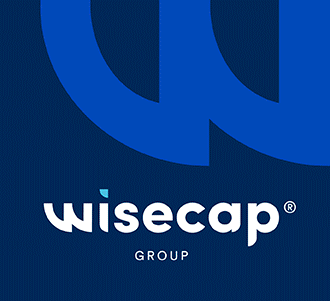United Caps, headquartered in Luxembourg, is an expert in caps. The practical and workable customer solutions offered by this plastics processing company drive yearly growth of 20%. Today it maintains seven production plants around the world, one each in Belgium, Germany, France, Ireland, Luxembourg, Spain and Hungary, and is currently building an eighth in Malaysia. From 2018, this new plant will produce around 300 million caps on four production lines for the local market. With over 500 different cap solutions, United Caps serves almost every conceivable industry, from agrochemistry to the automotive industry to the cosmetics and baby food sector. To enhance its presence in the beverage industry, the company exhibited at drinktec in Munich for the first time this year. PETnology took this opportunity for an interview with the CEO Benoit Henckes.


Photo: PETnology
United Caps CEO Benoit Henckes gives an interview discussing the motivation for the company’s debut at drinktec and growth potential in the beverage industry
“We understand our customers”

PETnology: Mr Henckes, which industries drive your company’s steady growth?
Benoit Henckes: The industries behind our considerable growth are currently chemicals, baby food and beverages.
PETnology: So mainly the food segment?
Henckes: The food segment is responsible for 85% of our growth, and non-food for 15%.
PETnology: How would you explain this disproportionately large growth in the food segment?
Henckes: Baby food is a long-standing area of growth for us – we offer an optimal solution for this sector in the form of our extremely user-friendly overcaps. In the beverage industry we have admittedly been something of an outsider until now, but this market is growing worldwide and we can score points with our individualised solutions.
PETnology: What do you attribute the growth in the beverage industry to?
Henckes: Firstly, consumer behaviour has been changing in recent years. There’s increasing demand for single-serve products, and on-the-go consumption of food and drinks is on the rise. This means smaller containers, and therefore more caps. Secondly, the concept of convenience has gained a lot of force. We’re designing more and more of our caps for individual consumer groups. This involves paying additional attention to a certain differentiation and uniqueness, since at the end of the day you always see which solution grabs the consumer’s attention and wins their acceptance at the point of sale.
PETnology: Can you give some examples of this?
Henckes: We developed a very unique cap that’s shaped similar to a flower, making it much easier to open than traditional round caps. Our customer offers its bottles with this cap specifically for older people – so it’s a typical convenience solution. For another customer we developed a special cap for the growth area of sports and fitness drinks. Our solution is a one-piece cap that’s opened with one hand and stays open thanks to a latch mechanism.
PETnology: There are already a lot of companies offering similar closure solutions to attract their customers. What do you think is a unique selling point that will ensure your company’s success?
Henckes: Our unique selling point is that we really understand the customer and can accompany them every step of the way from the concept to the finished cap. We have a vast wealth of experience. We carry out tests for customers in our technical centre so that they don’t have to interrupt their production lines. To facilitate this, we run a laboratory line which enables us to simulate 98% of all processes.
PETnology: Which injection moulding machines do you use in your production plants?
Henckes: We opted for fully electric injection moulding machines, which use less energy for production than hydraulic machines. It’s also important to us to have as many replacement parts on hand as possible, so that maintenance work can be carried out quickly. So we only use Engel and Husky machines and we keep all important replacement parts in stock.
PETnology: What requirements do you have for machinery manufacturers?
Henckes: Our main requirement is high efficiency. The key here is Industry 4.0. Our production is benefiting from increasing automation and predictive maintenance. There are certainly a lot more developments to look forward to in this area.
PETnology: One last question: in your opinion, what are the future trends that will shape the beverage industry?
Henckes: Aside from the industry trends we’ve already discussed, I assume that lightweighting will remain a hot topic, with caps also becoming lighter and lighter. And I see digital printing as a major trend. I’m certain that in the future caps will be printed based on increasingly individualised designs.
PETnology: Many thanks for the illuminating conversation, Mr Henckes.
The comPETence center provides your organisation with a dynamic, cost effective way to promote your products and services.

magazine
Find our premium articles, interviews, reports and more
in 3 issues in 2025.



